
Life sciences writer Susan Milius has been writing about botany, zoology and ecology for Science News since the last millennium. She worked at diverse publications before breaking into science writing and editing. After stints on the staffs of The Scientist, Science, International Wildlife and United Press International, she joined Science News. Three of Susan's articles have been selected to appear in editions of The Best American Science Writing.

Trustworthy journalism comes at a price.
Scientists and journalists share a core belief in questioning, observing and verifying to reach the truth. Science News reports on crucial research and discovery across science disciplines. We need your financial support to make it happen – every contribution makes a difference.
All Stories by Susan Milius
-
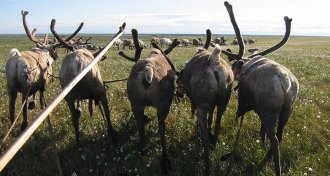 Climate
ClimateSkimpy sea ice linked to reindeer starvation on land
Unseasonably scant sea ice may feed rain storms inland that lead to ice catastrophes that kill Yamal reindeer and threaten herders’ way of life.
-
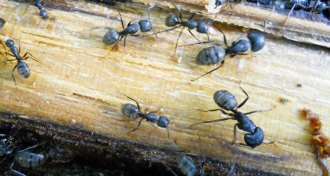 Climate
ClimateClimate change shifts how long ants hang on to coveted real estate
Simulated climate warming reveals a new pattern in turnover of ant nests.
-
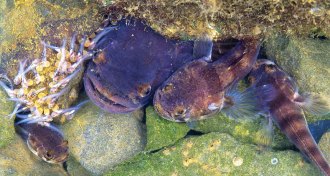 Animals
AnimalsMelatonin makes midshipman fish sing
Melatonin lets people sleep but starts male midshipman fish melodiously humming their hearts out.
-
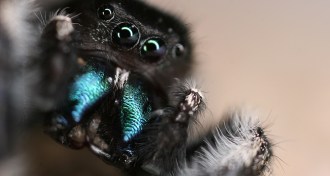 Animals
AnimalsBe careful what you say around jumping spiders
Sensitive leg hairs may let jumping spiders hear sounds through the air at much greater distances than researchers imagined.
-
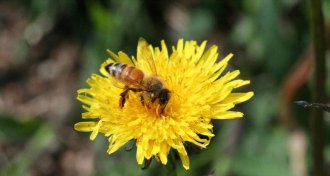 Animals
AnimalsBees take longer to learn floral odors polluted by vehicle fumes
Car and truck exhaust mingling with a floral scent can slow down the important process of honeybees learning the fragrance of a flower.
-
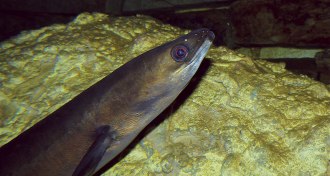 Animals
AnimalsEels may not take most direct route in epic ocean-crossing spawning runs
European eels’ epic ocean migrations to spawn may include more peculiar routes and timing than thought.
-
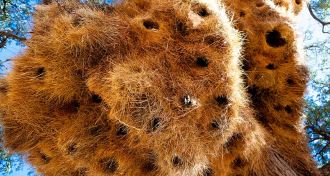 Animals
AnimalsExtreme bird nests bring comforts and catastrophe
Extreme bird nests of Southern Africa’s weaverbirds offer condo living in tough temperatures.
-
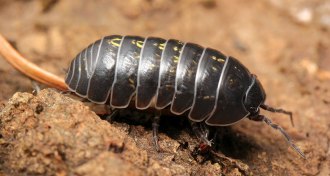 Genetics
GeneticsTo make female pill bugs, just add bacterial genes
Genes from Wolbachia bacteria infiltrated pill bugs and now make genetic males female.
-
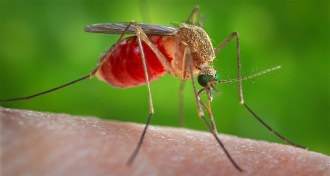 Animals
AnimalsNew case emerging for Culex mosquito as unexpected Zika spreader
The much-debated proposal that a Culex mosquito could help spread Zika gets some international support.
-
 Life
LifeAneil Agrawal unites math and mess
Evolutionary geneticist Aneil Agrawal is equally at home with real and hypothetical fruit flies.
-
 Ecosystems
EcosystemsShrinking sea ice threatens natural highways for caribou, plants
As Arctic sea ice declines, Peary caribou or plants risk getting stranded when their frozen highways thaw.
-
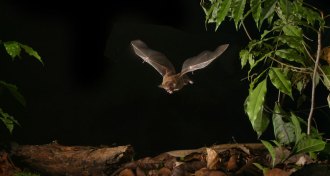 Animals
AnimalsFrog-hunting bats have ‘cocktail party effect’ workaround
Test with robotic frogs finds bats that hunt amphibians switch their attention to other clues if outside noise masks the mating chorus.